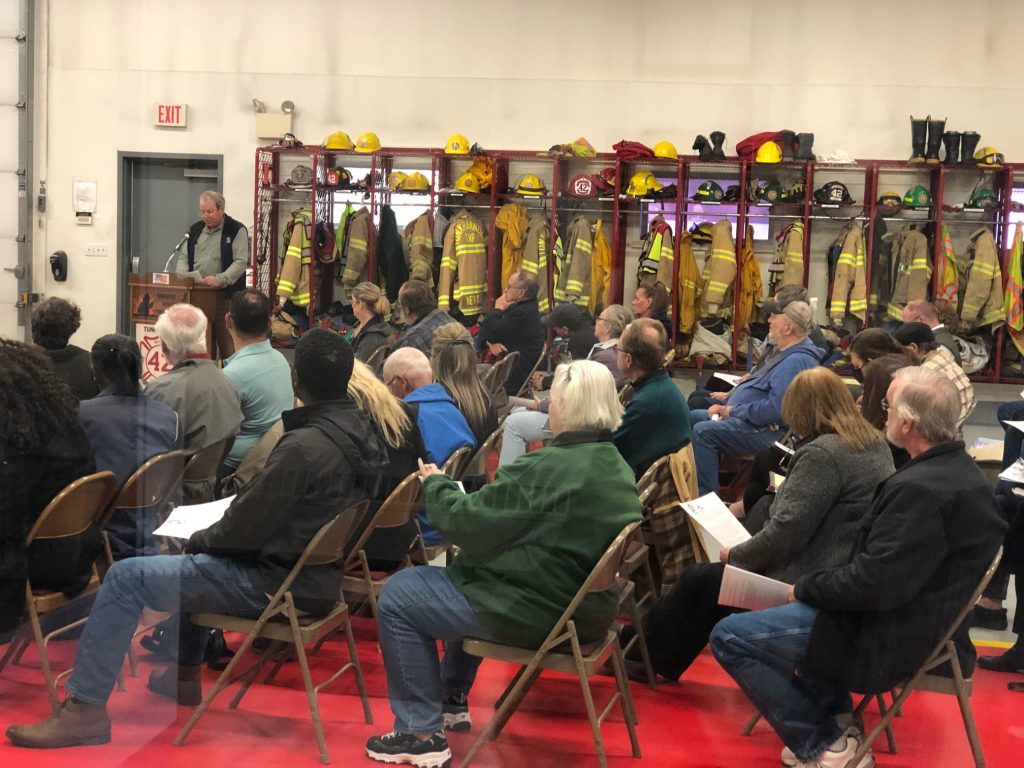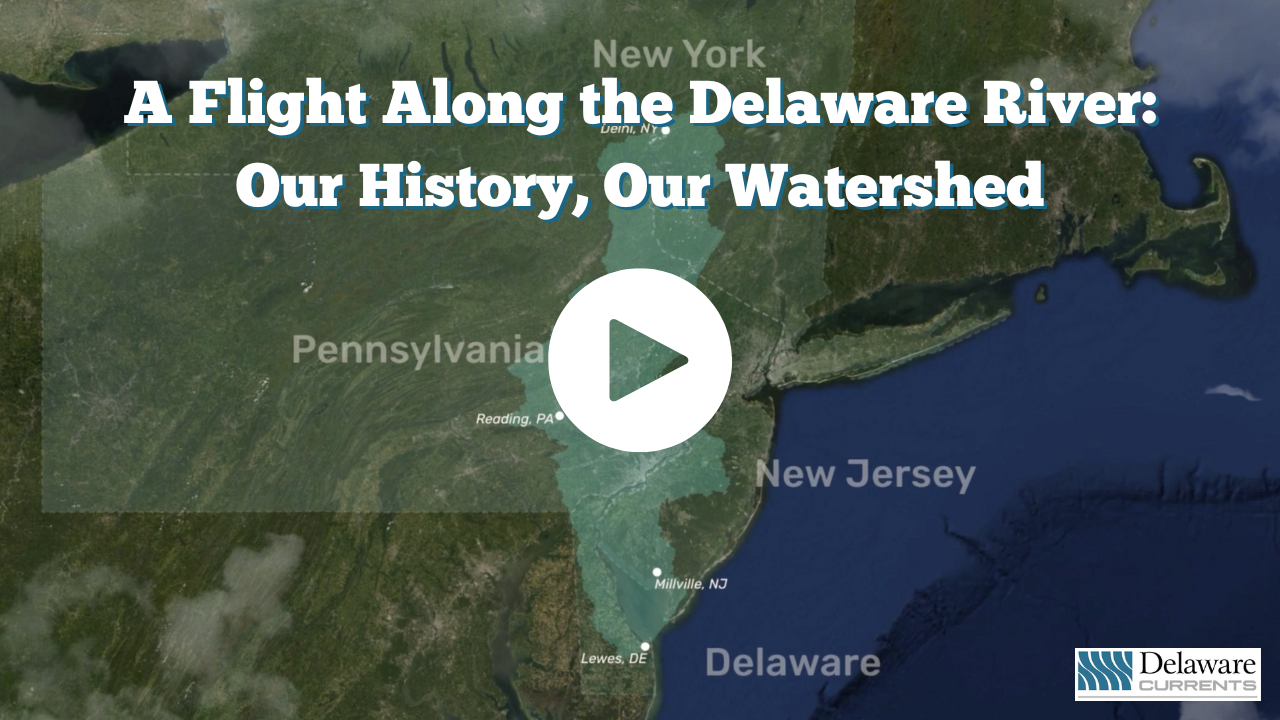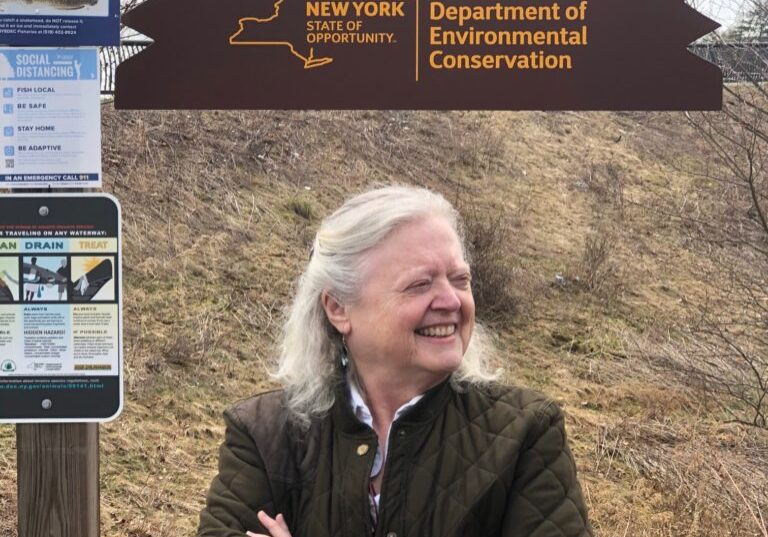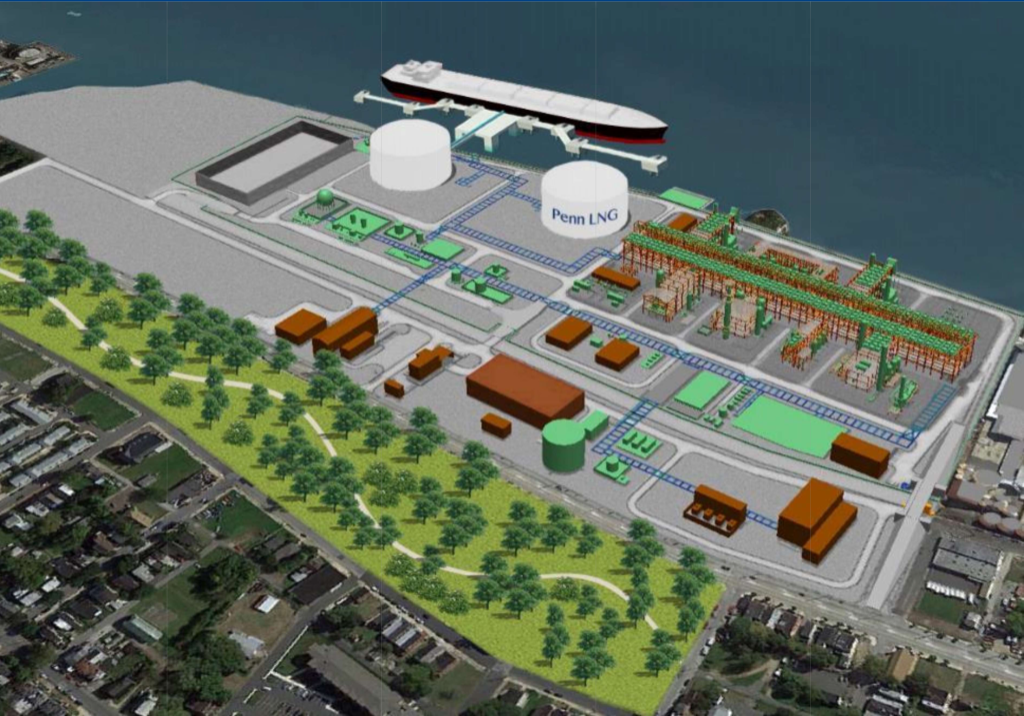
Proposed Poconos warehouses would harm quality of life and waters, opponents warn
| April 24, 2023
Three warehouses proposed in the Poconos would endanger sensitive wetlands and waterways, pollute the air and undermine the region’s quality of life, opponents said at hearings Monday night.
The proposed warehouses — ones in Tunkhannock Township would be 600,000 square feet and 150,000 square feet, and the one in Coolbaugh would be 333,000 square feet – underscore the explosive growth of these big-box structures in the Delaware River watershed that activists say pose a danger to air, water and soil.
Just this month, a national rivers advocacy group named the Lehigh River, the Delaware River’s second-largest tributary, as among the nation’s most endangered. The group said a proliferation of Lehigh Valley warehouses, which bring more paved surfaces and dirtier, faster runoff, threatens the river.
And in a special investigative series that starts today, Delaware Currents reports that nearly 150 warehouse and distribution centers amounting to nearly 90 million square feet have recently been built, proposed or approved in the 14 counties that make up the Delaware River watershed in New Jersey.
Harmful effects
Alex Jackson, the executive director of the Brodhead Watershed Association, described warehouse stormwater discharge as an “insidious” problem.
The runoff is a form of nonpoint pollution, meaning that it comes from multiple unmeasured sources, unlike a single point of wastewater discharge, which can be readily identified and monitored.
Broadly speaking and not about these Pocono projects specifically, Jackson said that runoff can include volatile organic compounds released from diesel exhaust from tractor-trailers that serve warehouses.
Jackson, a Tunkhannock resident who made his comments ahead of the hearing, described it as an “accumulating, generational effect,” that can harm air and water.
Further, he said, the DEP relies a on a “performance-based” approach to stormwater runoff, meaning the applicant is assumed to be in compliance and it’s a matter of the developer seeking forgiveness rather asking permission for deviations from the permit.
Though detention ponds can capture the runoff and help break down pollutants, it’s not a foolproof system and those ponds can sometimes fail, he said. Also, permits can allow runoff above a certain threshold to be directed right into streams and creeks.
[Read more about the explosion of warehouses in Lehigh River Valley in Pennsylvania]
More than 60 people attended the Pennsylvania Department of Environmental Protection hearings, with many raising concerns about how impervious surfaces, such as roofs and paved parking lots, would allow contaminants and road salt to undermine the quality of streams and wetlands that are classified as exceptional value. Some residents raised concerns about keeping their wells safe in the face of potential groundwater pollution.
In addition to the warehouses, the Tunkhannock Township project on Route 115 would include a total of nearly 750 parking spaces, a pharmacy, two fast-food restaurants, a gas station and a truck stop.
Abigail M. Jones, vice president of legal and policy at PennFuture, called on the DEP to consider the cumulative effects of multiple warehouse projects on the broader watershed.
“Monroe County has over 10 current proposals for distribution centers and other large-scale commercial and industrial developments,” she said, adding that there are at least three proposed distribution centers within a mile of each other that will affect Tunkhannock Creek, which is rated exceptional value.
Heartfelt testimonials
Representatives of the Delaware Riverkeeper Network handed out sheets of talking points to attendees as they showed up for the hearings at the Tunkhannock Township Fire Hall in Long Pond.
A graphic they distributed featured a red stop sign with the words “DEP Deny the Permits” and another sign below it that read “Clean Water Not Warehouses.”
Some speakers offered heartfelt testimonials about what the natural beauty of the area means to them.
Elyse Nehring recalled moving to Long Pond 10 years ago and when her son was little showing him a tributary of Tunkhannock Creek near their house. Her son, Streeter, who is autistic, loved to splash in the water, she said.
It is a cherished memory and tradition that would be devastating to lose to pollution, she said.
“When I think about these exceptional streams that my son splashed in being threatened by the warehouses, it terrifies me,” she said.
Other speakers raised concerns about the aesthetics of the warehouses and distribution centers and about their unknown contents. They asked whether local fire departments have the resources to respond effectively in the event of a fire or hazardous materials spill.
[Read more: A mammoth industrial park is planned near Delaware River in Pennsylvania’s Slate Belt]
Carmen Brodnax of Lond Pond noted that just next door to the Fire Hall was an office of the Nature Conservancy and on its website, it says of the Long Pond Preserve complex: “This part of the Pocono Mountains sustains the highest known assemblage of globally rare species in the state.”
With that in mind, Brodnax asked: “Why would you come to a place like this to put up” warehouses exceeding 1 million square feet?
“This to me is outrageous,” she continued. “What do we have to do to get you to deny these permits? Because we will. We are concerned citizens.”

Carmen Brodnax of Long Pond speaking Monday night.



![DC_Image [Image 4_Assunpink Meets Delaware] meets Delaware The Assunpink Creek on its its way to meet the Delaware River. The creek passes through woods, industrial and commercial areas and spots both sparkling and filled with litter.](https://delawarecurrents.org/wp-content/uploads/bb-plugin/cache/DC_Image-4_Assunpink-meets-Delaware-1024x768-landscape-14f069364113da5e8c145e04c9f2367c-.jpg)



